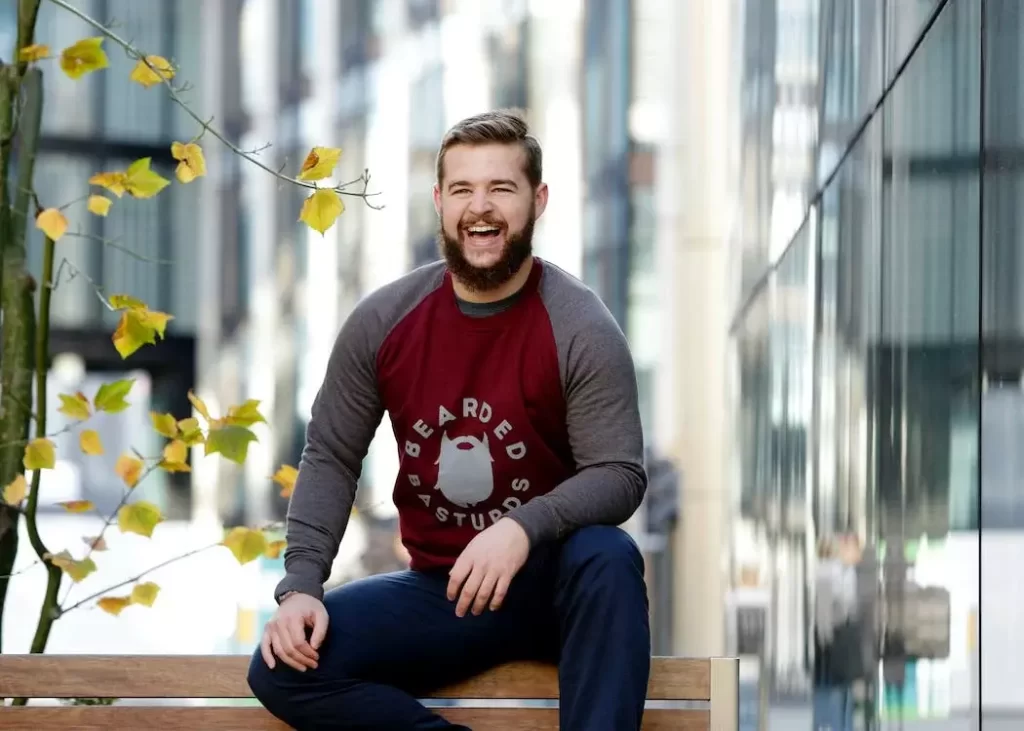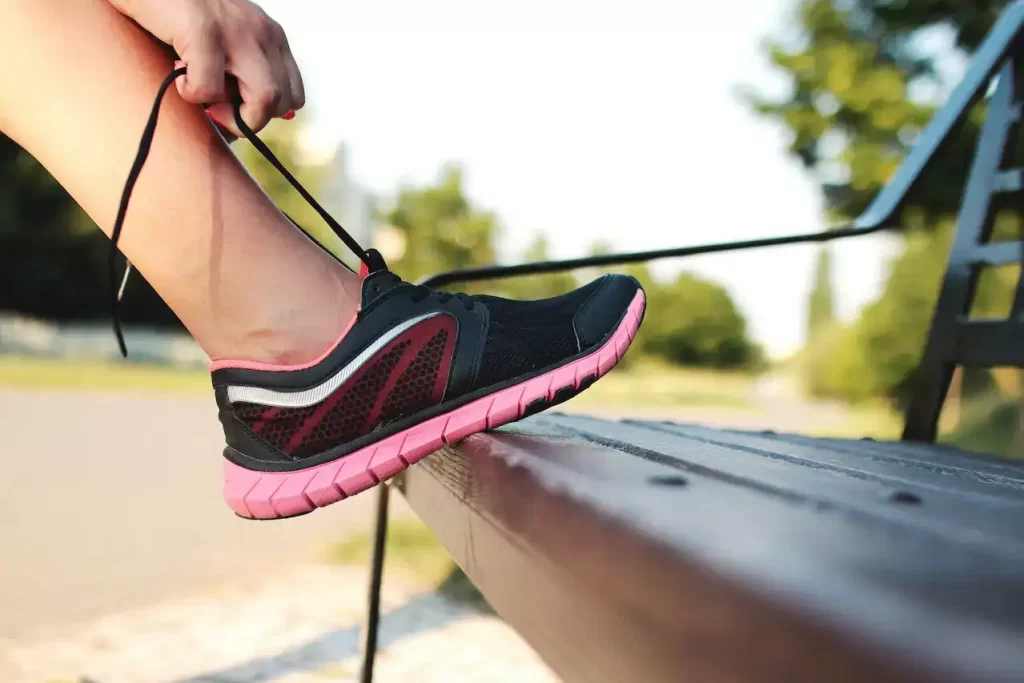Are you looking to become a better person, both inside and out? Well, you’ve come to the right place! In this blog, we’ll be sharing some tips and tricks on how you can achieve personal growth and self-improvement.
Becoming a better person doesn’t happen overnight, but it’s definitely something that you can work towards every day. It’s all about making small, positive changes that add up over time.
We’ll be covering a variety of topics in this blog, including self-care, goal-setting, gratitude, kindness, and reflection. These are all important aspects of personal growth, and by incorporating them into your daily routine, you can start to see positive changes in yourself and in your life.
We’ll provide practical advice and actionable steps that you can take to become the best version of yourself. Whether you’re looking to improve your physical health, develop new skills, or cultivate more meaningful relationships, we’ve got you covered.
So, grab a cup of tea or coffee and settle in. Let’s embark on this journey of personal growth together!
Taking Care of Yourself
Taking care of yourself is not only important but it is necessary for a happy and fulfilling life. Self-care is about taking responsibility for your own health and happiness, and recognizing that you are the most important person in your life.
It involves actively taking care of your physical, mental, and emotional well-being on a regular basis.
The first step towards practicing self-care is to make it a priority. You cannot take care of others or accomplish your goals if you are not taking care of yourself. This means making time for yourself, setting boundaries, and saying no when you need to.
It is not selfish to put your needs first, but rather it is necessary to ensure that you are able to function at your best.
Physical self-care involves taking care of your body through exercise, proper nutrition, and getting enough rest. It means taking time to rest when you are sick, and taking care of any medical issues that may arise.
By taking care of your physical health, you are ensuring that you have the energy and vitality to enjoy life to the fullest.
Mental self-care is about taking care of your mind. This involves taking time to relax, meditate, or engage in activities that help you unwind. It means learning to manage stress, and seeking help when you need it.
By taking care of your mental health, you are able to stay focused, productive, and resilient in the face of challenges.
Emotional self-care is about taking care of your feelings. This involves identifying your emotions and finding healthy ways to express them.
It means seeking out positive relationships and support systems, and learning to let go of negative emotions. By taking care of your emotional health, you are able to build stronger relationships and live a more fulfilling life.
Practicing self-care is the first step towards living a happy and fulfilling life. It involves taking responsibility for your own health and happiness, and actively taking care of your physical, mental, and emotional well-being. By making self-care a priority, you are able to function at your best and enjoy all that life has to offer.
Setting Goals
Setting goals for yourself is a crucial aspect of personal growth and development. Goals give you direction and purpose, something to strive towards, and help you measure your progress along the way. Without goals, life can become stagnant, and you may feel like you’re drifting aimlessly.
When you set goals, you create a roadmap for your life. They allow you to prioritize your time and energy and focus on what’s most important to you. Goals can be short-term or long-term, and they can be related to any area of your life, such as career, health, relationships, or personal development.
Moreover, setting goals also helps you to identify your strengths and weaknesses. When you set a goal, you need to assess where you are currently and where you want to be. This process helps you identify your strengths and weaknesses, and you can work on developing the skills you need to achieve your goals.
Having a goal in mind also helps you stay motivated. The road to success is not always easy, and it’s easy to lose motivation when things get tough. However, when you have a clear goal in mind, you’re more likely to stay committed and keep pushing forward.
Setting goals is an essential part of personal growth and development. It helps you create a sense of direction and purpose in your life and allows you to prioritize your time and energy. So take some time to think about what you want to achieve and start setting goals today!
Practicing Gratitude
Practicing gratitude is a simple yet powerful way to improve your overall well-being and enhance your quality of life. Gratitude means acknowledging and being thankful for the good things in your life, no matter how small or insignificant they may seem.
By cultivating gratitude, you can develop a more positive outlook on life and experience more joy, contentment, and happiness.
When you focus on the positive aspects of your life and express gratitude for them, you create a ripple effect that can transform your mindset and uplift those around you. Practicing gratitude can also improve your physical health by reducing stress, boosting your immune system, and improving sleep quality.
To incorporate gratitude into your daily routine, try keeping a gratitude journal where you write down three things you are thankful for each day.
This simple exercise can help you shift your focus from what you lack to what you have and create a more positive and optimistic mindset.
You can also practice gratitude by expressing your appreciation to others. Take a moment to thank someone who has made a positive impact on your life or write a letter of gratitude to a friend or family member.
By expressing your appreciation to others, you not only cultivate gratitude within yourself but also spread positivity and kindness to those around you.
Practicing gratitude can have a profound impact on your overall well-being and can help you appreciate the good things in your life. By incorporating gratitude into your daily routine, you can create a more positive and fulfilling life.
Be Kind To Others
Kindness is a simple yet powerful tool that has the ability to transform the world we live in. Being kind to others is one of the easiest and most effective ways to improve ourselves as individuals and to make a positive impact on the people around us.
Small acts of kindness can go a long way in brightening someone’s day and making them feel appreciated, loved, and cared for.
Kindness is contagious, and when we choose to be kind to others, we inspire them to pay it forward and be kind to others as well. Kindness is not limited to grand gestures or material gifts; it can be as simple as a smile, a kind word, a compliment, or a small act of service. These acts of kindness not only benefit the person on the receiving end but also have a positive impact on our own well-being.
When we choose to be kind, we feel happier, more fulfilled, and connected to the world around us. It also helps us develop empathy and understanding towards others, which is an essential quality for personal growth and development.
Being kind to others also helps us build stronger and more meaningful relationships with the people in our lives.
Small acts of kindness can also have a ripple effect on our communities and the world at large. By being kind, we contribute to creating a more positive and compassionate world.
It’s important to remember that kindness doesn’t have to be a grand gesture; it can be as simple as holding the door open for someone, offering to help a neighbor with their groceries, or complimenting a coworker on their work.
Being kind to others is a powerful way to become a better person and make a positive impact on the world around us. So, let’s make a conscious effort to practice kindness in our everyday lives and inspire others to do the same.
Reflect
Taking time to reflect on oneself is a crucial aspect of personal development. In the fast-paced world we live in, we often get caught up in the daily hustle and bustle of life, and rarely take a moment to pause and reflect on our thoughts, feelings, and actions. However, reflection is important as it helps us understand ourselves better and gain insight into our behaviors, beliefs, and values.
By taking time to reflect, we can identify areas of our lives that require improvement, as well as celebrate our achievements and successes. Reflection can help us understand our emotions and the reasons behind them, which can lead to greater emotional intelligence and self-awareness. It can also help us gain clarity on our goals and aspirations, and make us more mindful of the steps we need to take to achieve them.
Reflecting can also help us appreciate the moments and experiences in our lives. By looking back at our past experiences, we can learn valuable lessons, and see how we have grown and developed over time. This, in turn, can help us become more grateful for the opportunities and people in our lives, and lead to a more positive outlook.
Taking time to reflect is a crucial aspect of personal growth and self-improvement. It can help us gain insight into ourselves, our behaviors, and our emotions, and lead to a greater sense of self-awareness and appreciation for the moments and experiences in our lives.
Conclusion
In conclusion, becoming a better person is a continuous process that requires intentional effort and a commitment to personal growth.
By practicing self-care, setting goals, practicing gratitude, being kind to others, and taking time to reflect, you can become the best version of yourself.
Remember that it’s okay to make mistakes and experience setbacks along the way. What’s important is that you keep pushing forward and making progress.
So, take a deep breath, be kind to yourself, and trust the journey. With these tips, you’re well on your way to becoming the amazing person you were meant to be!





